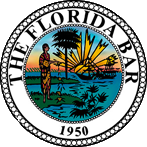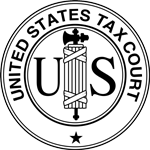Is the IRS Trust Fund Recovery Penalty Severe? Yes, the IRS Trust Fund Recovery Penalty (TFRT) is often called the “100% penalty” because the penalty equals the amount of the payroll trust fund taxes owed, making this one of the most significant and most impactful penalties in the IRS arsenal. Internal Revenue Code section 6672(a) allows the IRS to…
Continue reading ›Read Our Latest News
Incurring IRS penalties can be costly. Although there are over 150 different IRS civil penalties ranging in severity, the three most common types issued are: On average, over 90% of the annual penalties issued by the IRS come from these three penalties. Fortunately, the Internal Revenue Service does provide a process for penalty reduction requests…
Continue reading ›Who Can Benefit from the IRS Fresh Start Program? The IRS Fresh Start is a tax relief program designed to help struggling taxpayers regain financial footing. A struggling taxpayer is someone experiencing financial difficulty while paying their IRS tax liabilities and basic living expenses. TheFresh State Program provides several tax relief options to taxpayers who…
Continue reading ›Although it’s not the end of the world, being subject to an IRS audit can seem burdensome. To increase the probability of a better outcome and surely acquire peace of mind, you can have a tax attorney-CPA-IRS EA, Will Harmon, represent you throughout the Audit. In addition to being a tax expert, Will has an…
Continue reading ›When the IRS sends you a CP14 Notice in the mail, it is because you have a current IRS tax balance owed. This notice informs you of the amount owed, including tax, interest, and any applicable penalties, and demands payment. The CP14 notice is a progression notice in the IRS collection scheme. This notice gets…
Continue reading ›Unfiled Tax Returns and the IRS Statute of Limitations Life activities can cause filing your tax returns to become a lesser priority resulting in non-filings to occur. If you are in this situation, please note that if you meet filing requirements, you must still file your tax returns. The filing requirements are based on your…
Continue reading ›If paying both basic living expenses and IRS tax liability is causing you economic hardship, you may qualify for being granted tax relief from IRS by obtaining Currently Not Collectible Status. What is Currently Not Collectible Status? If the IRS places your tax account into Currently Not Collectible status, the IRS will no longer be…
Continue reading ›When Do I Need To Seek IRS Tax Resolution? This is one of those questions you hope you never have to ask. However, since taxes are an unavoidable part of life and, at some point, most of us will have to deal with the IRS in some capacity, it may be prudent to understand when…
Continue reading ›Opening your mail only to discover you are on receiving end of an IRS Audit is a daunting experience; however, if you keep your wits about yourself and follow specific steps, the immensity of the ordeal will lessen significantly. Invariably, we all must deal with the IRS at some point. Here are some steps to…
Continue reading ›The IRS cannot engage in collections activities against you without an assessed tax in place first. Before an IRS tax assessment occurs, you, the taxpayer, have a right to be informed of any pending assessment. To facilitate your awareness of a pending IRS tax assessment, the IRS has a statutory system that issues you a…
Continue reading ›










